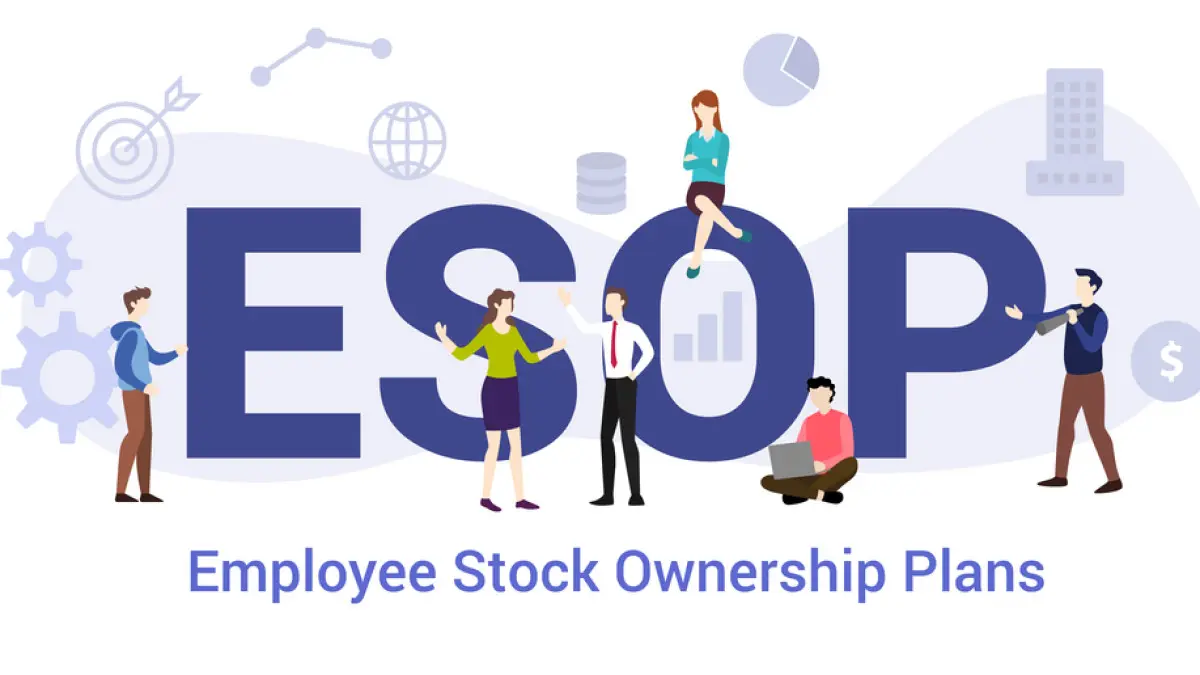Giving has become a popular tool for companies to attract, motivate, and retain talent. In today’s fast-paced working society, jumping from one company to another is a common practice to move up the corporate ladder. To keep high-quality talent from leaving the company, employer shares are used to incentivise employees to work towards the long-term goal.
Companies like Alibaba, founded by Jack Ma during a period when tech employees were highly sought after, exemplify the power of employee motivation through share option schemes. To retain top talent, Jack Ma inspired his employees with the vision of making Alibaba the most valuable company in China.
By offering employees the option to purchase shares in the company at a future date for a predetermined price, companies align the interests of employees with the long-term success of the organization.
These schemes offer employees the opportunity to purchase company shares at a predetermined price, providing numerous benefits to both the employees and the organization. Here’s a comprehensive look at why saying yes to an ESOP is a win-win for all involved.
5 Reasons Why ESOP May Be Beneficial For You

If you look at the top tech companies in the world, such as Facebook, Tesla, Nvidia, and Apple, you'll find that many of their founders and early employees are still with the company. This enduring commitment is largely due to the power of employee share option schemes, which keep employees motivated and invested in the company's success.
For instance, Nvidia employees who have been with the company for over five years have become millionaires, thanks to the stock options they received. These options not only reward long-term loyalty but also drive employees to work harder, knowing their efforts directly contribute to their financial future.
1. Attracting Top Talent
In a competitive job market, offering ESOP can set a company apart from others.
Potential employees are not only looking for attractive salaries but also for additional benefits that enhance their financial growth. An ESOP can be a decisive factor for highly skilled candidates who are considering multiple job offers.

When employees have a stake in the company, they are more likely to feel a sense of belonging and commitment. This shared vision fosters a collaborative environment where everyone is working towards the same goal – the success of the company.
2. Enhancing Employee Motivation and Productivity
Employees who own shares in the company are more likely to think like owners rather than just employees. This ownership mentality drives them to work harder, be more innovative, and contribute more effectively to the company’s success. When the company prospers, their shares increase in value, directly benefiting them.

An ESOP typically includes a vesting period, which encourages employees to stay with the company longer to reap the full benefits. This long-term incentive aligns the interests of the employees with those of the company, reducing turnover and retaining valuable talent.
Goals are also embedded in the terms and conditions of the ESOP to incentivize employees to meet the targets set by the company. The rewards become more substantial as the difficulty of the goals increases, motivating employees to strive for higher performance levels.
This structure not only encourages employees to aim higher but also aligns their personal success with the company's growth and profitability, creating a mutually beneficial environment. By tying rewards to challenging goals, the ESOP ensures that employees are continually pushing their boundaries, driving innovation, and contributing to the company's long-term success.
3. Financial Benefits for Employees
For employees, ESOP represents an opportunity to accumulate wealth without significant upfront investment. If the company performs well, the value of its shares can increase substantially, providing them with considerable financial gains.
In many jurisdictions, employee share options come with tax advantages. These can include deferred taxation or reduced tax rates on capital gains, making ESOP an attractive option from a financial planning perspective.
In Singapore, tax exemption of 75% of the gains arising from the ESOP or ESOW plan. Tax exemption is available over a period of 10 years, subject to qualifying criteria. The cumulative gains on which the tax exemption applies are capped at $10 million over the 10-year period and the gains must be derived on or before 31 Dec 2023.
4. Strengthening Company Culture
An ESOP fosters a culture of shared success. Employees feel more connected to the company’s achievements and challenges, promoting a stronger, more united corporate culture. This sense of shared destiny can improve morale and create a positive, engaged workforce.

When employees are shareholders, their goals align more closely with those of the company. This alignment helps ensure that everyone is working towards common objectives, which can streamline decision-making processes and enhance overall business performance.
5. Improving Business Performance
Numerous studies have shown that companies with ESOP in place often see increased productivity. Employees who are invested in the company’s success are more likely to go the extra mile, leading to higher efficiency and better results.
By motivating employees to work towards the company’s profitability and growth, an ESOP can contribute to better financial health. This, in turn, can make the company more attractive to investors, further driving up the value of shares and creating a positive cycle of growth and success.
Are Your Employees Motivated?
Implementing an Employee Share Option Scheme is a strategic move that can provide significant benefits to both the company and its employees.
From attracting and retaining top talent to enhancing motivation and productivity, an ESOP aligns the interests of employees with those of the company, fostering a culture of shared success and driving business performance.
In today's competitive market, saying yes to an Employee Share Option Scheme is not just a good idea – it’s a smart business strategy that can lead to long-term prosperity for all stakeholders.